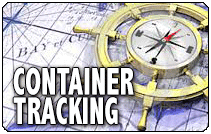Guidelines for a Smooth International Move
Grace International Relocations is dedicated to making your international moving experience a smooth one. In order to help ease you through the international relocation process, we have provided some guidelines below you can follow before emerging on your journey.
Research the country you are moving to:
Since every country has different laws and customs, we recommend reviewing the laws and customs of your destination country before you arrive. This will help you familiarize yourself with their etiquette’s, and will help you avoid any unforeseen problems. You can find this information at the country’s consulate.
We also recommend researching potential schools your children may attend. The U.S. embassy of your destination country can provide you with a list of schools referred to as the American schools. These schools follow the established U.S. curriculum and provide all lessons in English.
Obtain Visas/Passports:
You will be able to obtain all legal documents and permits that allow you to immigrate to your destination country from the country’s consulate. You can find an application for a passport at your local post office. Along with the application you will need two forms of photo identification and a copy of your birth certificate. Allow 2 to 3 weeks for the application to be completed.
Gather Records and Personal Papers:
When staying abroad there are many types of documentation required in order to establish identity, apply for permits and licenses, verify legal arrangements, pay taxes, or fulfill any other obligation required to you by the government of your host country. We recommend that you make many copies of such documents to take with you on your trip. Make sure to keep them where they are accessible to you at all times during your travels.
In addition to passports and visas, some documentation that you should have readily available includes the following:
• Adoption Papers
• Birth certificates of each family member
• Certificate of citizenship for naturalized individuals
• Dental records
• Descriptive data page of each family members passport
• Divorce and child custody papers
• Drivers license
• Income tax records of several previous years
• Lease or rental agreement for housing in your new country
• Marriage certificate
• Medical insurance coverage
• Medical records (where appropriate)
• Passport-size photographs of each family member
• Power of attorney
• Property and motor vehicle insurance records
• Wills
In addition, it can be useful to have several copies of employment contracts, or a letter from the employer that is relocating you. The contract or letter should outline the terms of the overseas assignment such as length of stay, salary, housing arrangements, and other pertinent conditions. Though the employer may have already secured the necessary permits and approvals, having such documentation readily available may answer any questions that arise with local host country authorities.
Investigate Vaccinations and Inoculations:
Before moving abroad you will most likely need immunizations, inoculations, and booster shots. Your children will most likely need them in order to enroll in school. The U.S. Public Health Service Quarantine can tell you which immunizations you and your family will need before you relocate.




